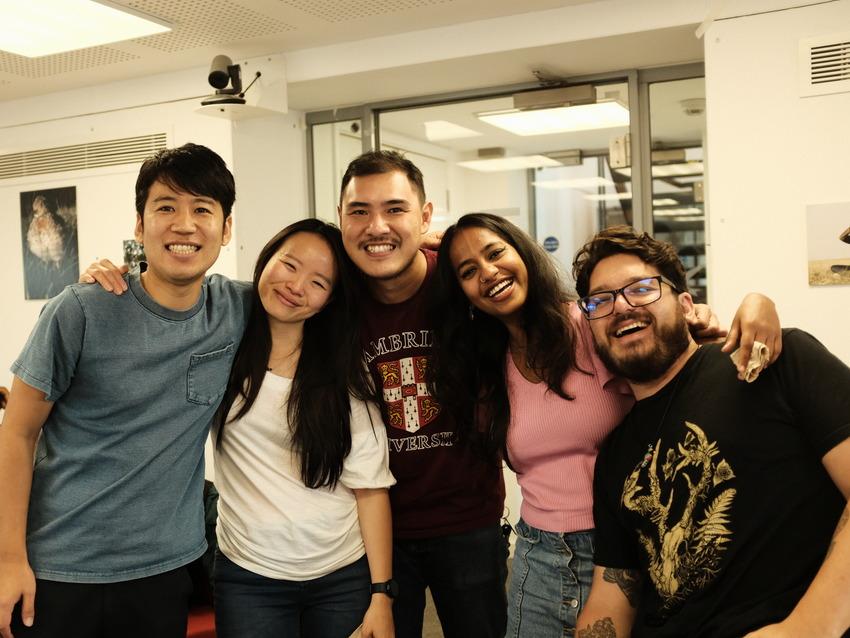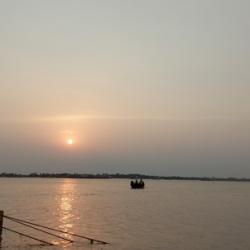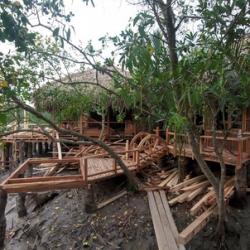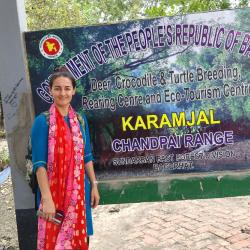
Visit the about section for an overview of the Masters’, and find full course details including how to apply here. Applications for 2025-26 entry are now closed. The application deadline was 3 December 2024.
Students come from a very diverse set of backgrounds and from all over the world. With around 20 students joining the course each year, inter cohort bonds become very strong and this peer relationship is seen as one of the most valuable elements of the programme. Networking and bonding with classmates is one of the main goals of the residential field trip which takes place early in the academic year, usually to the Norfolk broads
The structure of the course takes students on a journey through the year from understanding themselves as leaders, through leading people and organisations and finally to leading change in wider society, which is the ultimate aim of conservation. The course starts with a focus on interactive seminars in the classroom and then gradually transitions to pure experiential learning, culminating in the individual Professional Placement.
The taught modules are structured in the following way:
Taught modules
CL101 Conservation Leadership Problems and Practice
This module introduces conservation leadership in theory and practice, ensuring that students have a shared understanding of the main drivers of biodiversity loss today.
CL102 Leading Self
This module aims to equip students with personal resilience, reflexive practice, cultural awareness and career planning abilities.
CL103 Leading People and Organisations
This module aims to provide students with the tools to lead people and organisations, focussing on strategic planning, human resources, fundraising and project management.
CL104 Innovation for Conservation Leadership
This module aims to provide future conservation leaders with skills to manage, innovate and be entrepreneurial. It includes an intensive group consultancy project, undertaken with one of the CCI partner organisations.
CL105 Leading Systems
This module aims to help students understand how to bring about change in the wider world through incentives, communication, governance and other tools.
Professional placements
A central component of the Masters is the professional placement with an organisation engaged in conservation practice and/or research. Students work on a specific project which addresses a carefully defined conservation leadership challenge.
Examples of placement topics
-
Improving the quality and type of information shared between conservation organisations, Indigenous Peoples and Local Communities (IPLCs) and other actors – hosted by Fauna and Flora International
-
Assessing the Role of Nature Tourism in Enhancing Resilience of Coastal Communities: A case study on mangrove tourism in the Philippines – hosted by UNEP-WCMC
-
Understanding the effects of political change on the implementation of projects on combatting illegal wildlife trade in Central Asia – hosted by Fauna and Flora International
-
Turning the Tide: Enhancing Access To Seagrass Blue Carbon Financing to Facilitate Coastal Community Resilience – hosted by Blue Ventures
-
Expansion of youth leadership in BTO and the wider environmental sector – hosted by BTO
-
Ecotourism in the post-COVID-19 era for the world’s largest Partnership for nature – hosted by BirdLife International
Case Study: Rasima Sabzalieva (2022-23)
Rasima Sabzalieva conducted her placement project in Bangladesh, hosted by Solimar International and the local NGO Bangladesh Environment and Development Society (BEDS). The project, funded by USAID's Ecotourism activity project from 2021 to 2024, focused on the Greater Sundarbans Region, covering 76 villages and attractions such as the Karamjal Ecotourism Center, Katka Beach, and Harbaria Ecotourism Center. Her research explored the impacts of ecotourism on adjacent communities, addressing funding challenges for mangrove restoration in the Sundarbans. Key questions examined the economic, environmental, and socio-cultural effects of ecotourism, as well as opportunities and challenges in using ecotourism revenue for mangrove restoration. Through interviews, surveys, and data analysis, Rasima assessed these impacts and explored the feasibility of using ecotourism income for Payment for Ecosystem Services (PES) to support conservation. The research also looked into leadership challenges in conservation within communities, organizations, and systems, aiming to provide recommendations for improvement and best practices.
Visa Information for International Applicants
If you're an international student, it's crucial to understand the visa requirements for studying in the UK before applying.
Please review the following resources:
1. University of Cambridge Visa Advice
2. UK Government Student Visa Information
We strongly recommend checking these links and understanding the visa process before submitting your application. Ensuring you meet visa requirements is an essential part of your application process.
For any visa-related queries, please contact: internationalstudents@admin.cam.ac.uk



